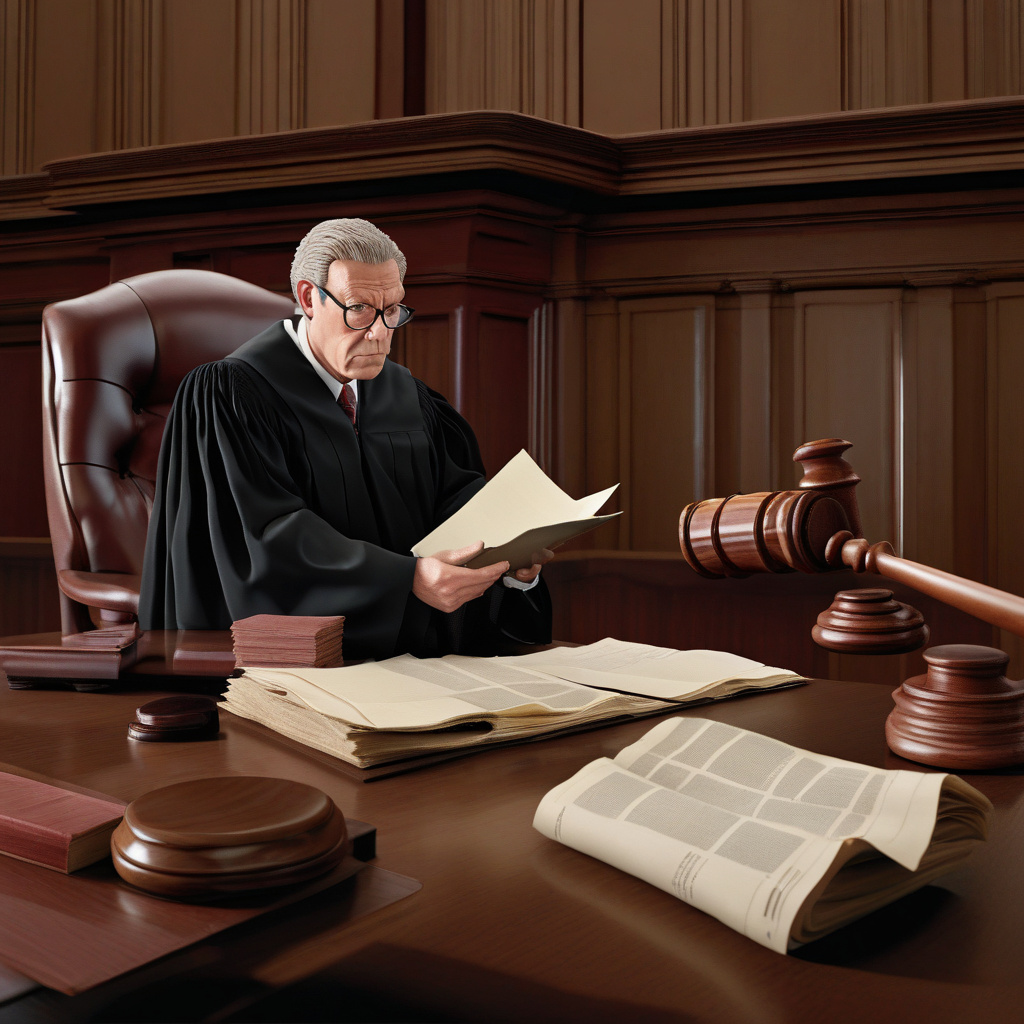Elon Musk, the enigmatic tech billionaire known for his ventures in Tesla, SpaceX, and more recently, his fascination with cryptocurrencies like Dogecoin, now finds himself in the midst of a legal controversy. A federal judge, Theodore Chuang, has raised concerns that Musk’s oversight of the Department of Government Efficiency might be in violation of the United States Constitution’s appointments clause.
The appointments clause, a crucial provision in the Constitution, requires that principal officers of the United States must be appointed by the President with the advice and consent of the Senate. This separation of powers is designed to ensure accountability and prevent the concentration of authority in a single individual’s hands.
Musk’s unconventional leadership style, marked by his Twitter pronouncements and unorthodox approach to governance, has raised eyebrows in legal circles. While his supporters laud his innovative thinking and bold vision, critics argue that his informal control over key government functions could undermine the fundamental principles of checks and balances.
This legal challenge adds a new layer of complexity to Musk’s already diverse portfolio of ventures. From electric cars to space exploration, his forays into different industries have captivated the public imagination. However, the question of whether his involvement in government affairs complies with constitutional norms is a matter of serious debate.
As the case unfolds in the U.S. District Court for the District of Maryland, all eyes will be on how the legal system grapples with the intersection of technology, entrepreneurship, and constitutional law. For Musk, who has never shied away from pushing boundaries and challenging conventions, this latest development presents a unique test of his influence and authority.
In the fast-paced world of tech and innovation, where disruptors like Musk often blur the lines between industry and government, this legal dispute serves as a reminder of the enduring importance of legal frameworks and institutional safeguards. While bold leadership and visionary thinking are essential for progress, they must operate within the boundaries of established norms and legal principles to ensure accountability and integrity.
As professionals in the IT and development fields, observing this case can offer valuable insights into the complexities of leadership, governance, and legal compliance in an increasingly interconnected world. It underscores the significance of understanding not only the technological advancements driving our industry but also the legal and regulatory frameworks that shape the boundaries of innovation.
In conclusion, Elon Musk’s potential constitutional challenge highlights the delicate balance between innovation and regulation, individual leadership and institutional oversight. As the case evolves, it prompts us to reflect on the broader implications of leadership in the digital age and the importance of upholding constitutional principles in an ever-changing landscape of technology and governance.

